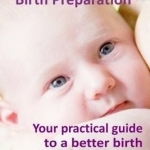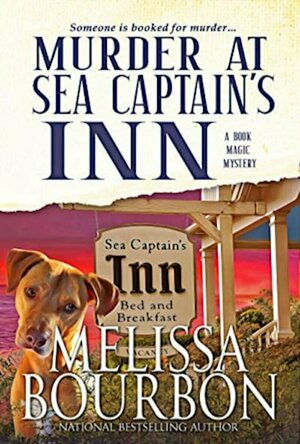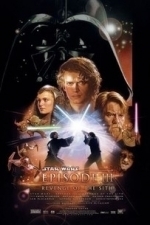Search
Guy Garvey recommended Glory Hope Mountain by The Acorn in Music (curated)
Roxanne (13 KP) rated Midwife on Call: Tales of Tiny Miracles in Books
Nov 14, 2018
This is the memoir of Agnes Light, a woman with a very strong passion for her working life. It's a story of her journey through life as a community midwife. This isn't the usual sort of book that I would pick up as I've never really thought about childbirth or the jobs of doctors and midwives. Since I am expecting my first baby I thought I would try and get some information, I've been trying self help books but have found them a bit too clinical and impersonal so I thought I would give this memoir a go. I was pleasantly surprised when I finished this...I really enjoyed it. I found the attitudes towards patients and staff within the NHS in the 60s to be fascinating compared to what it is like now. I knew it was different but just not how different. Agnes' journey was a brilliant read as it was like being in the room with these women as they gave birth, I felt really involved, emotionally and mentally. Some of her stories were heartwarming and filled with joy yet others were devastating and full of heartbreak. The reader is taken to both sides of the spectrum of midwifery, no stone left unturned. I like Agnes' attitude and outspokenness, she wasn't afraid to speak up for the rights of her patients. The only thing that grated on me a little bit was that she kept mentioning how open minded she is, how supportive and non-judgemental she is yet at one point she spoke about a certain scenario and explained how she wouldn't do it that way and she didn't understand why these women did the opposite to her...I wouldn't say that's very open minded as she wasn't aware of all the facts. I believe if she knew fully the circumstances of some of these women then she would of understood their reasoning for doing what they did. This is why I chose to give the book 4 stars instead of 5...I had a bit of a grumble. Overall, the book is fascinating and very descriptive, it doesn't sugarcoat things and it doesn't spoon feed you excess amounts of medical jargon so a pretty easy read. I found it very emotional in some places due to the trauma some of these women had to go through, it was always fully expressed and explained in great detail and so I wouldn't recommend this book to really sensitive readers, it could be quite overbearing at times, however, I found this was necessary in order to get the reader emotionally involved. I borrowed this from the library and am very glad that I did, I will be looking for other similar stories to read.

EMS ALS Guide
Medical and Reference
App
The original EMS Field Guide® from Informed Publishing—the trusted leader in emergency reference...

Effective Birth Preparation: Your Practical Guide to a Better Birth
Book
In response to the success of the award winning "Natal Hypnotherapy CDs" and courses, founder Maggie...
In a world where everything can be bought and sold, even pregnancy has a value in The Farm by Joanne Ramos. Make no mistake: this isn’t dystopian fiction. In fact it’s probably closer to what is actually happening than we could imagine.
Jane (a Filipino immigrant to the USA) has been persuaded by her aunt, that the easiest way to provide for her infant daughter is to become a surrogate for someone else’s baby. Mae runs Golden Oaks (nicknamed The Farm by Lisa, another of the surrogates), a luxury resort set in woodland, far from prying residents of Golden Oaks are all young women. And they’re all pregnant with the babies of wealthy parents. It came as no surprise to me that the vast majority of these women were immigrants from The Philippines or Eastern Europe. Mae has just started to look at a more ‘luxury’ host: women who have very good educations. The future parents are willing to pay a premium rate for women like Reagan. Not that it could make any difference, because all of the surrogates are merely incubators (referred to by their numbers, not their names, when staff are talking about them out of earshot), and carry embryos made from their parents sperm and eggs. These are mainly people who don’t want to waste their time with pregnancy, childbirth and recovery. This part really didn’t sit well with me: pregnant women reduced to numbers, and parents who didn’t have time to be pregnant (how could they have time to be parents? Would their babies be like a new designer handbag?). The other thing, was that they largely speaking didn’t have time to even visit the women who were carrying their children. At one point in the book, an ultrasound technician doesn’t even acknowledge the pregnant woman that she’s seeing (or isn’t!), angles the screen away from her as she shows the picture of the baby to its parent who isn’t even in the room. The pregnant woman is a non-person - merely a walking incubator.
Make no mistake, this is a pretty damning insight in to class and race. I felt so sorry for Jane. She is cut off from her daughter. None of the women have regular contact with friends or family on the outside. And seeing foetuses and babies being used as commodities and benchmarks of profit really made me uncomfortable.
I did really enjoy this though. I liked the women who were the main characters - they all had valid reasons for their choices. And I liked that this wasn’t written as an alternative dystopian novel à la Handmaids Tale. It’s all so frighteningly plausible.
Jane (a Filipino immigrant to the USA) has been persuaded by her aunt, that the easiest way to provide for her infant daughter is to become a surrogate for someone else’s baby. Mae runs Golden Oaks (nicknamed The Farm by Lisa, another of the surrogates), a luxury resort set in woodland, far from prying residents of Golden Oaks are all young women. And they’re all pregnant with the babies of wealthy parents. It came as no surprise to me that the vast majority of these women were immigrants from The Philippines or Eastern Europe. Mae has just started to look at a more ‘luxury’ host: women who have very good educations. The future parents are willing to pay a premium rate for women like Reagan. Not that it could make any difference, because all of the surrogates are merely incubators (referred to by their numbers, not their names, when staff are talking about them out of earshot), and carry embryos made from their parents sperm and eggs. These are mainly people who don’t want to waste their time with pregnancy, childbirth and recovery. This part really didn’t sit well with me: pregnant women reduced to numbers, and parents who didn’t have time to be pregnant (how could they have time to be parents? Would their babies be like a new designer handbag?). The other thing, was that they largely speaking didn’t have time to even visit the women who were carrying their children. At one point in the book, an ultrasound technician doesn’t even acknowledge the pregnant woman that she’s seeing (or isn’t!), angles the screen away from her as she shows the picture of the baby to its parent who isn’t even in the room. The pregnant woman is a non-person - merely a walking incubator.
Make no mistake, this is a pretty damning insight in to class and race. I felt so sorry for Jane. She is cut off from her daughter. None of the women have regular contact with friends or family on the outside. And seeing foetuses and babies being used as commodities and benchmarks of profit really made me uncomfortable.
I did really enjoy this though. I liked the women who were the main characters - they all had valid reasons for their choices. And I liked that this wasn’t written as an alternative dystopian novel à la Handmaids Tale. It’s all so frighteningly plausible.

Pregnancy Tracker & Baby App
Health & Fitness and Medical
App
From the brand chosen by over 400 million expecting parents, BabyCenter's pregnancy tracker and baby...
Shelle Perry (66 KP) rated Murder at Sea Captain’s Inn in Books
Jul 23, 2021
The Lane women are so genuinely interesting, I keep coming back for more.
The Book Magic Mystery series is such a splendid way to spend a couple of hours. It starts with a curse; the women in the family are doomed to die in childbirth and their men doomed to be taken by the sea. Add in the special power the women sometimes have as bibliomancers, that in itself makes this series intriguing. What avid reader wouldn’t want to be able to do that?
In Murder at Sea Captain’s Inn, Pippin and her brother Grey are the latest descendents of the Lane family. Pippin is desperate to find a way to break the family curse if only to save her brother from his seemingly preordained fate. She has turned the house they inherited from their parents into a bed and breakfast and she has her hands full with the grand opening. It is bad enough that one of her guests has turned up dead, but as Pippin gets pulled into investigating, it turns out that the woman may have known something about the curse that has been following the Lanes for the past two millennia.
Melissa Bourbon knows how to tell a story. Honestly, that is all that needs to be said.
There is so much going on in the 250+ pages of this book. Pippin has picked up her father’s investigation into her lineage and is learning to have confidence in her role as a biblimancer. That narrative alone is fascinating. I could read a 500 page book on that aspect of the story alone. The Lane women are so genuinely interesting, I keep coming back for more.
I truly enjoyed the tidbits of archeology and history laced into the plot. With a budding archaeologist in the house, I admit to being just a little too excited to read about optically stimulated luminescence in the course of a mystery novel. I mean that doesn’t just pop up in a typical conversation. I also love that I didn’t see whodunnit until it was explained. When Pippin figured it out, I was hoping she was wrong because I just didn’t want to believe it, but of course it was there in the clues the whole time. How did I miss it? Simply put, the clues are so subtly woven into the story that it is easy to forget that we, as readers, are here to help Pippen solve a mystery.
I do think this reads well as a stand alone if this is your first experience with the series. Still, book 1 and its prequel are so worth the effort. The story isn’t all told yet, so I will be back for more.
⭐⭐⭐⭐⭐
Rating: 4.5 out of 5.
I received an advance review copy for free through Great Escapes Virtual Book Tours, and I am leaving this review voluntarily
In Murder at Sea Captain’s Inn, Pippin and her brother Grey are the latest descendents of the Lane family. Pippin is desperate to find a way to break the family curse if only to save her brother from his seemingly preordained fate. She has turned the house they inherited from their parents into a bed and breakfast and she has her hands full with the grand opening. It is bad enough that one of her guests has turned up dead, but as Pippin gets pulled into investigating, it turns out that the woman may have known something about the curse that has been following the Lanes for the past two millennia.
Melissa Bourbon knows how to tell a story. Honestly, that is all that needs to be said.
There is so much going on in the 250+ pages of this book. Pippin has picked up her father’s investigation into her lineage and is learning to have confidence in her role as a biblimancer. That narrative alone is fascinating. I could read a 500 page book on that aspect of the story alone. The Lane women are so genuinely interesting, I keep coming back for more.
I truly enjoyed the tidbits of archeology and history laced into the plot. With a budding archaeologist in the house, I admit to being just a little too excited to read about optically stimulated luminescence in the course of a mystery novel. I mean that doesn’t just pop up in a typical conversation. I also love that I didn’t see whodunnit until it was explained. When Pippin figured it out, I was hoping she was wrong because I just didn’t want to believe it, but of course it was there in the clues the whole time. How did I miss it? Simply put, the clues are so subtly woven into the story that it is easy to forget that we, as readers, are here to help Pippen solve a mystery.
I do think this reads well as a stand alone if this is your first experience with the series. Still, book 1 and its prequel are so worth the effort. The story isn’t all told yet, so I will be back for more.
⭐⭐⭐⭐⭐
Rating: 4.5 out of 5.
I received an advance review copy for free through Great Escapes Virtual Book Tours, and I am leaving this review voluntarily
Lee (2222 KP) rated Pieces of a Woman (2020) in Movies
Dec 29, 2020
Vanessa Kirby (1 more)
The birth scene
Pieces of a Woman stars Vanessa Kirby and Shia LaBeouf as Martha and Sean, a married couple preparing for the imminent arrival of their first child. But a heartbreaking home birth leaves Martha struggling with grief and becoming increasingly isolated from Sean and her family.
If you've heard anything about Pieces of a Woman recently, it will no doubt be in relation to the home birth scene. Coming right at the start of the movie, and following a brief introduction to our two parents to be, the birth is shot in a single 22 minute take, from the point of Martha's waters breaking in the kitchen, to the arrival of the midwife and the eventual birth of the baby. As with any childbirth, there's a lot going on, a lot of emotions as the drama moves between the various rooms of the house. And everyone involved is outstanding, particularly Vanessa Kirby who is completely convincing. With the impressive, extended intro over, we cut to black and the title of the movie appears on screen. We then move onto the aftermath.
At first, we don't know exactly what went wrong with the birth and Martha and Sean do not have all of the answers either, which is essentially where a lot of the grief and tension arise from. Martha returns to work, to the shock of her co-workers, and it's clear that both her and Sean are very quickly beginning to drift apart, dealing with their grief in very different ways. Sean resorts to drinking, sleeping with Martha's cousin and having emotional outbursts, while Martha remains quietly detached from everyone and everything, and even meets with a local university to discuss donating their baby's body to medical science. Dirty plates stack up in the kitchen, house plants become limp from lack of water and attention.
We also discover that, in among all of the grief, everyone seems determined that the midwife who delivered their baby be blamed, prosecuted and sent to jail for five years, due to negligence and manslaughter. This is something which makes absolutely no sense when you first learn of it and even less sense when we finally arrive in the courtroom towards the end.
As we limp from month to month, the writing becomes worse and the film becomes increasingly frustrating and baffling. There's an impressive supporting cast of friends and family, all delivering their melodramatic monologues with flair, but the writing holds them back and prevents the movie from delivering any of the much needed emotional impact. At times, conversations appear to be badly improvised and just as it feels like we're about to get something of significance out of a scene or character, we cut to a different setting or later period in time, and all momentum is lost.
A bold, impressive 30 minute opening and a performance from Vanessa Kirby which continues to highlight just how talented she is. But apart from that, Pieces of a Woman just feels flat.
If you've heard anything about Pieces of a Woman recently, it will no doubt be in relation to the home birth scene. Coming right at the start of the movie, and following a brief introduction to our two parents to be, the birth is shot in a single 22 minute take, from the point of Martha's waters breaking in the kitchen, to the arrival of the midwife and the eventual birth of the baby. As with any childbirth, there's a lot going on, a lot of emotions as the drama moves between the various rooms of the house. And everyone involved is outstanding, particularly Vanessa Kirby who is completely convincing. With the impressive, extended intro over, we cut to black and the title of the movie appears on screen. We then move onto the aftermath.
At first, we don't know exactly what went wrong with the birth and Martha and Sean do not have all of the answers either, which is essentially where a lot of the grief and tension arise from. Martha returns to work, to the shock of her co-workers, and it's clear that both her and Sean are very quickly beginning to drift apart, dealing with their grief in very different ways. Sean resorts to drinking, sleeping with Martha's cousin and having emotional outbursts, while Martha remains quietly detached from everyone and everything, and even meets with a local university to discuss donating their baby's body to medical science. Dirty plates stack up in the kitchen, house plants become limp from lack of water and attention.
We also discover that, in among all of the grief, everyone seems determined that the midwife who delivered their baby be blamed, prosecuted and sent to jail for five years, due to negligence and manslaughter. This is something which makes absolutely no sense when you first learn of it and even less sense when we finally arrive in the courtroom towards the end.
As we limp from month to month, the writing becomes worse and the film becomes increasingly frustrating and baffling. There's an impressive supporting cast of friends and family, all delivering their melodramatic monologues with flair, but the writing holds them back and prevents the movie from delivering any of the much needed emotional impact. At times, conversations appear to be badly improvised and just as it feels like we're about to get something of significance out of a scene or character, we cut to a different setting or later period in time, and all momentum is lost.
A bold, impressive 30 minute opening and a performance from Vanessa Kirby which continues to highlight just how talented she is. But apart from that, Pieces of a Woman just feels flat.
Movie Metropolis (309 KP) rated The Twilight Saga: Breaking Dawn Part 2 (2012) in Movies
Jun 10, 2019
The Twilight Saga has had a tough time in its short screen life. Constant comparisons to Harry Potter and now The Hunger Games have ensured that it has taken a back seat to these franchises. After 3 bitterly disappointing instalments in the series, Breaking Dawn Part 1 which was released last year lifted the bar and promised a fine end to the series. One year later, Part 2 has been released, but can it keep up the momentum set by its predecessor?
The answer, unfortunately is no and as Robert Pattinson (Edward Cullen), Taylor Lautner, (Jacob Black) and Kristen Stewart (Bella Swan) pull the curtains over the long suffering franchise, you can’t help but feel a strange sense of sadness. These films haven’t been as good as they could’ve.
Breaking Dawn Part 2 starts immediately where the last film finished as Bella Swan (Stewart) gives birth to her half-human, half-vampire child. For some bizarre reason, the blood and childbirth elements of the last film have been completely thrown to the wind as Bella awakens as a vampire and is better than ever. Not reminding viewers of what went before was a major oversight on the part of director Bill Condon and those not familiar with the books will have a hard time remembering what happened last year.
It just so happens that Bella and Edward’s daughter Renesmee is growing at an astonishing rate. To show this, the producers have created her with a CGI layering effect which means using a real baby with a CGI face. Unfortunately, this means that Renesmee is the creepiest baby you will have ever had the misfortune to see. Surely there must’ve been some money left over from the $120m budget to create a real treat for fans. As it is, the first time you lay eyes on Renesmee, there is a gasp of horror rather than adoration.
Unfortunately, the sinister Volturi have gotten wind of Renesmee’s existence thanks to a brief cameo by Maggie Grace (Taken 2) as Irina. She mistakenly believes that the child is a pure vampire which is, under no circumstances allowed. Michael Sheen is a highlight as Aro, leader of the Volturi, his camp, unbelievably over the top performance, highlighted perfectly in the film’s finale, is a breath of fresh air against the heavy breathing, downtrodden characterisations from the rest of the cast.
Special effects have never been a strong point for this movie franchise and things really haven’t improved in this latest instalment. We’ve already mentioned the horror of Bella’s demon baby, but the werewolves are pretty bad too and really don’t move the game on at all. In fact, in some sequences it’s like we’re back in the 90s.
It’s not all bad news however; a real highlight for me throughout the course of the films has been the excellent cinematography. The setting is absolutely wonderful, from the snow-capped peaks and plains, to the cliff edges and forests, everything looks fantastic and director Bill Condon really knows how to maximise the environment he has been given to work with.
Unfortunately, no amount of scenery can save a film which, ultimately is a bit of a damp squib. This is more apparent in the finale, which I can honestly say is one of the worst I have ever seen in a film franchise. This is, partly down to Stephenie Meyer’s amateurish writing in the novel, which ensures the final scenes which should’ve been a joy to watch, are completely disregarded and frankly, stupid.
So, there we have it, The Twilight Saga has ended and what a saga it has been. Three average films at best gave way to Breaking Dawn Part 1, which showed promise and could possibly have been the saviour of the franchise. However, the release of Breaking Dawn Part 2 has pushed things back to where it was before the 3rd instalment, Eclipse. The series’ passionate fans have deserved much better and when it should’ve been going out with a bit of bite, instead, we leave Twilight on a bit of a whimper.
https://moviemetropolis.net/2012/12/03/twilight-breaking-dawn-pt-2-review/
The answer, unfortunately is no and as Robert Pattinson (Edward Cullen), Taylor Lautner, (Jacob Black) and Kristen Stewart (Bella Swan) pull the curtains over the long suffering franchise, you can’t help but feel a strange sense of sadness. These films haven’t been as good as they could’ve.
Breaking Dawn Part 2 starts immediately where the last film finished as Bella Swan (Stewart) gives birth to her half-human, half-vampire child. For some bizarre reason, the blood and childbirth elements of the last film have been completely thrown to the wind as Bella awakens as a vampire and is better than ever. Not reminding viewers of what went before was a major oversight on the part of director Bill Condon and those not familiar with the books will have a hard time remembering what happened last year.
It just so happens that Bella and Edward’s daughter Renesmee is growing at an astonishing rate. To show this, the producers have created her with a CGI layering effect which means using a real baby with a CGI face. Unfortunately, this means that Renesmee is the creepiest baby you will have ever had the misfortune to see. Surely there must’ve been some money left over from the $120m budget to create a real treat for fans. As it is, the first time you lay eyes on Renesmee, there is a gasp of horror rather than adoration.
Unfortunately, the sinister Volturi have gotten wind of Renesmee’s existence thanks to a brief cameo by Maggie Grace (Taken 2) as Irina. She mistakenly believes that the child is a pure vampire which is, under no circumstances allowed. Michael Sheen is a highlight as Aro, leader of the Volturi, his camp, unbelievably over the top performance, highlighted perfectly in the film’s finale, is a breath of fresh air against the heavy breathing, downtrodden characterisations from the rest of the cast.
Special effects have never been a strong point for this movie franchise and things really haven’t improved in this latest instalment. We’ve already mentioned the horror of Bella’s demon baby, but the werewolves are pretty bad too and really don’t move the game on at all. In fact, in some sequences it’s like we’re back in the 90s.
It’s not all bad news however; a real highlight for me throughout the course of the films has been the excellent cinematography. The setting is absolutely wonderful, from the snow-capped peaks and plains, to the cliff edges and forests, everything looks fantastic and director Bill Condon really knows how to maximise the environment he has been given to work with.
Unfortunately, no amount of scenery can save a film which, ultimately is a bit of a damp squib. This is more apparent in the finale, which I can honestly say is one of the worst I have ever seen in a film franchise. This is, partly down to Stephenie Meyer’s amateurish writing in the novel, which ensures the final scenes which should’ve been a joy to watch, are completely disregarded and frankly, stupid.
So, there we have it, The Twilight Saga has ended and what a saga it has been. Three average films at best gave way to Breaking Dawn Part 1, which showed promise and could possibly have been the saviour of the franchise. However, the release of Breaking Dawn Part 2 has pushed things back to where it was before the 3rd instalment, Eclipse. The series’ passionate fans have deserved much better and when it should’ve been going out with a bit of bite, instead, we leave Twilight on a bit of a whimper.
https://moviemetropolis.net/2012/12/03/twilight-breaking-dawn-pt-2-review/
Gareth von Kallenbach (980 KP) rated Star Wars: Episode III – Revenge of the Sith (2005) in Movies
Aug 14, 2019
After three long years of waiting, countless internet rumors, and high expectations, the final big screen Star Wars film, Star Wars: Episode III Revenge of the Sith has arrived to the delight of millions of fans worldwide.
The lavish and dark film chronicles the fall of the Republic, the demise of the Jedi Knights, and the creation of Darth Vader amongst several plotlines that complete the Prequel Trilogy.
While many critics and fans had mixed reactions to the previous films in the Prequel Trilogy, the rumors of a much darker more mature Star Wars had even the most jaded curious to see just how dark creator George Lucas was willing to go.
The film opens with the familiar main theme by John Williams and the scrolling text that updates the viewers that the Clone Wars that started at the end of the last film are still raging, and that the Separatist movement under the leadership of Count Dooku (Christopher Lee), have kidnapped the Chancellor of the Republic (Ian Mc Diarmid), and a desperate battle over the capitol planet of Coruscant has ensued.
In a dazzling blend of colors, action, and motion, two fighters piloted by Obi Wan Kenobi (Ewan McGregor), and Anakin Skywalker (Hayden Christensen), weave in and around countless fighters and capitol ships engaged in deadly combat. To say that it is an overwhelming visual display would be an understatement, as it is simply jaw dropping to see the detail that the magicians at Industrial Light and Magic have crafted.
Obi Wan and Anakin are spearheading the rescue effort that eventually puts them not only against Dooku, but the new villain, the deadly cyborg General Grevious and this is all within the first 15 minutes of the film.
Upon returning the Chancellor to Coruscant, Anakin is greeted by his wife in secret, Padme, (Natalie Portman), who informs him that she is expecting their baby.
Overjoyed by the news, and to be home after many long months away fighting, Anakin as if in a true Shakespearean tragedy proclaims that he has never been happier in his life.
Anakin’s peace is soon disrupted as he begins to have visions of his wife dying in childbirth, since these are the same type of visions Anakin had shortly before the death of his mother years earlier, he becomes obsessed with protecting his wife.
As further political intrigue unfolds, Chancellor Palpatine appoints Anakin to be his representative on the Jedi Council in a move that does nor sit well with the Jedi Elite, especially Mace Windu (Samuel L. Jackson), who begrudgingly accepts the appointment but does not bestow the title of Master upon Anakin causing further friction for the emotional Anakin.
It seems that the Jedi do not trust Palpatine and are convinced he is up to something, and will not relinquish his emergency powers that were granted to him during the war.. Towards this end, The Jedi Council tasks Anakin to spy on his friend the Chancellor and report what he has learned to the council.
This in turn causes much conflict in Anakin as he is torn between his duty as a Jedi and his friendship with the Chancellor. Since Obi Wan has been dispatched to hunt down General Grevious, Anakin is without his usually confidant and mentor leaving Palpatine to influence Anakin and turn him toward fateful decisions that will eventually change the course of the galaxy.
While filled with plenty of political intrigue, and dazzling action sequences, what drives this film is the gripping, human drama of the characters. While the viewers know what is to become of Anakin, seeing the path he takes is what makes this film a true tragedy as he does what he does for noble reasons. In a true Faustian tale, the devil does not reveal himself nor his true intentions until it is already well past the point of no return.
Lucas is careful to show Anakin as a sympathetic and loving person, who has matured from the spoiled character that he was in the last film. While at times the dialogue of the film may seem to some to be very basic, the tragic turn of events in the film helps to underscore the central themes of love, friendship, and betrayal.
The supporting work in the film is solid, especially the emotionally packed work of Mc Gregor and the maniacal performance of Mc Diarmid. My only real regret is that Portman did not have a larger role or more for her character to do, that being said, the film works on all levels.
Visually the film is amazing as the exotic locales, action, and computer generated characters such as Yoda and Grevious are a marvel to behold. It is amazing how much technology has advanced since the last film, but once again, Lucas has set the bar very high for others to follow.
Lucas has taken in my opinion some very undeserved criticism for the Prequel Trilogy, and Sith should dispel those who said that his best work was behind him and that he should have turned the directing duties over to another as this film once again underscores that he is one of the most gifted visionaries ever, and has created the ultimate saga for the ages that is second to none, and one that has and will stand the test of time.
Sith is a riveting and emotional film, that holds nothing back, it is the darkest Star Wars yet and is easily the best of the Prequel trilogy and on par with any of the classic originals, and is a true masterpiece that will delight fans old and new.
The lavish and dark film chronicles the fall of the Republic, the demise of the Jedi Knights, and the creation of Darth Vader amongst several plotlines that complete the Prequel Trilogy.
While many critics and fans had mixed reactions to the previous films in the Prequel Trilogy, the rumors of a much darker more mature Star Wars had even the most jaded curious to see just how dark creator George Lucas was willing to go.
The film opens with the familiar main theme by John Williams and the scrolling text that updates the viewers that the Clone Wars that started at the end of the last film are still raging, and that the Separatist movement under the leadership of Count Dooku (Christopher Lee), have kidnapped the Chancellor of the Republic (Ian Mc Diarmid), and a desperate battle over the capitol planet of Coruscant has ensued.
In a dazzling blend of colors, action, and motion, two fighters piloted by Obi Wan Kenobi (Ewan McGregor), and Anakin Skywalker (Hayden Christensen), weave in and around countless fighters and capitol ships engaged in deadly combat. To say that it is an overwhelming visual display would be an understatement, as it is simply jaw dropping to see the detail that the magicians at Industrial Light and Magic have crafted.
Obi Wan and Anakin are spearheading the rescue effort that eventually puts them not only against Dooku, but the new villain, the deadly cyborg General Grevious and this is all within the first 15 minutes of the film.
Upon returning the Chancellor to Coruscant, Anakin is greeted by his wife in secret, Padme, (Natalie Portman), who informs him that she is expecting their baby.
Overjoyed by the news, and to be home after many long months away fighting, Anakin as if in a true Shakespearean tragedy proclaims that he has never been happier in his life.
Anakin’s peace is soon disrupted as he begins to have visions of his wife dying in childbirth, since these are the same type of visions Anakin had shortly before the death of his mother years earlier, he becomes obsessed with protecting his wife.
As further political intrigue unfolds, Chancellor Palpatine appoints Anakin to be his representative on the Jedi Council in a move that does nor sit well with the Jedi Elite, especially Mace Windu (Samuel L. Jackson), who begrudgingly accepts the appointment but does not bestow the title of Master upon Anakin causing further friction for the emotional Anakin.
It seems that the Jedi do not trust Palpatine and are convinced he is up to something, and will not relinquish his emergency powers that were granted to him during the war.. Towards this end, The Jedi Council tasks Anakin to spy on his friend the Chancellor and report what he has learned to the council.
This in turn causes much conflict in Anakin as he is torn between his duty as a Jedi and his friendship with the Chancellor. Since Obi Wan has been dispatched to hunt down General Grevious, Anakin is without his usually confidant and mentor leaving Palpatine to influence Anakin and turn him toward fateful decisions that will eventually change the course of the galaxy.
While filled with plenty of political intrigue, and dazzling action sequences, what drives this film is the gripping, human drama of the characters. While the viewers know what is to become of Anakin, seeing the path he takes is what makes this film a true tragedy as he does what he does for noble reasons. In a true Faustian tale, the devil does not reveal himself nor his true intentions until it is already well past the point of no return.
Lucas is careful to show Anakin as a sympathetic and loving person, who has matured from the spoiled character that he was in the last film. While at times the dialogue of the film may seem to some to be very basic, the tragic turn of events in the film helps to underscore the central themes of love, friendship, and betrayal.
The supporting work in the film is solid, especially the emotionally packed work of Mc Gregor and the maniacal performance of Mc Diarmid. My only real regret is that Portman did not have a larger role or more for her character to do, that being said, the film works on all levels.
Visually the film is amazing as the exotic locales, action, and computer generated characters such as Yoda and Grevious are a marvel to behold. It is amazing how much technology has advanced since the last film, but once again, Lucas has set the bar very high for others to follow.
Lucas has taken in my opinion some very undeserved criticism for the Prequel Trilogy, and Sith should dispel those who said that his best work was behind him and that he should have turned the directing duties over to another as this film once again underscores that he is one of the most gifted visionaries ever, and has created the ultimate saga for the ages that is second to none, and one that has and will stand the test of time.
Sith is a riveting and emotional film, that holds nothing back, it is the darkest Star Wars yet and is easily the best of the Prequel trilogy and on par with any of the classic originals, and is a true masterpiece that will delight fans old and new.






